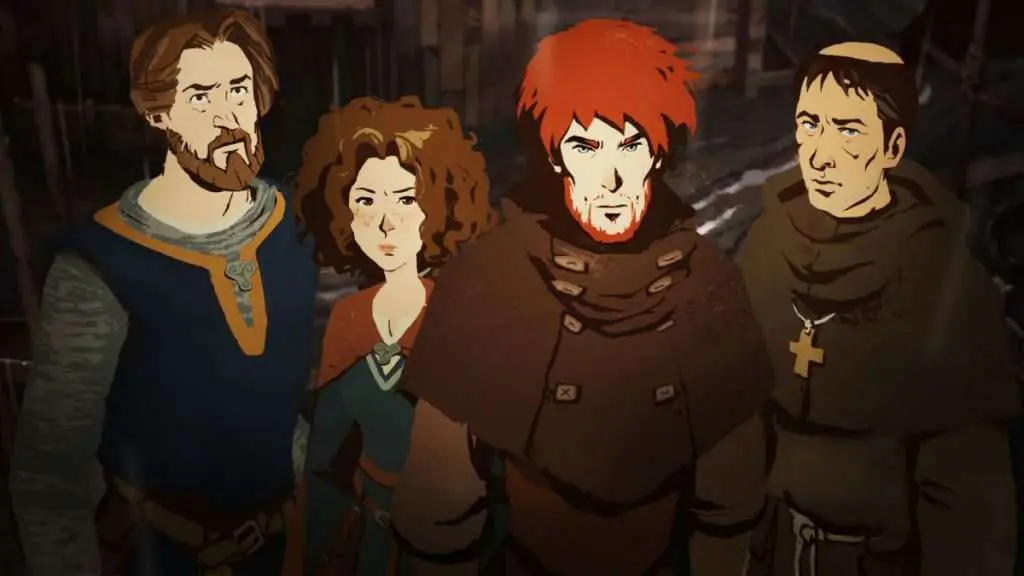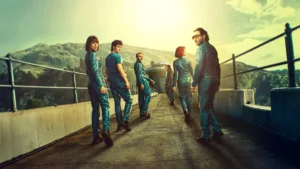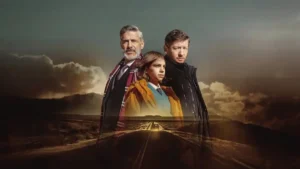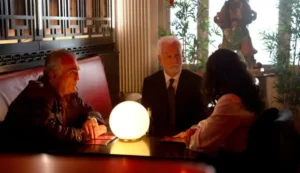Summary
A historical point-and-click adventure set in Medieval England, The Pillars of the Earth will be a tough sell for some. But it tells a mature and compelling (albeit slow) story that is well-worth experiencing.
The Pillars of the Earth is an odd game. It’s a point-and-click adventure that leans more towards being a straight-up interactive visual novel. As a matter of fact, it’s based directly on Ken Follet’s 1989 period book of the same name. Because of this it’s unusually well-written, and tells a proper, meaty, mature story about political corruption, religiosity and war in 12th Century England. It’s also, for a while, criminally boring.
Yes, I know. Here I am, a long-time proponent of better, more thoughtful video game storytelling, slapping an unashamedly literary video game experience with that most trite and dismissive of critical labels. But as I played through the first of the game’s three parts (all of which are available now), that was the feeling I kept returning to, over and over again: Boredom. The Pillars of the Earth is fucking boring.
Until, of course, it isn’t. I just wonder how many players will tolerate it for long enough to find that out.
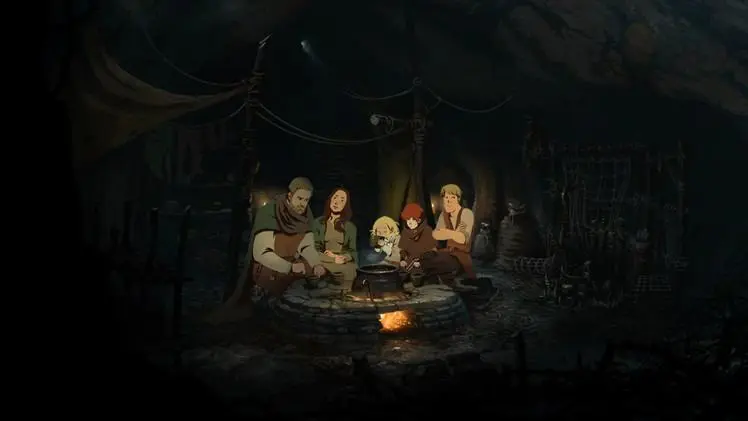
That word, “boring”, I know I’m using it flippantly. And I know I’ve just insulted the intelligence and attention-span of the video-gaming masses, although in fairness they’ve rarely given me a reason not to. But as overused as the word is, people know what I mean by it. In its earliest hours, The Pillars of the Earth is glacially slow, wonkily structured, and devoid of almost any interesting goings-on. After the needlessly lengthy prologue, when I realised that it was, in fact, just a prologue, I distinctly recall exclaiming, “Oh my God, it hasn’t even started yet!”
The game is divided into three “books”, each with seven “chapters”, and I continued to feel that way through the first few. Which is quite a long time. I kept getting that insistent urge to check my phone, or to alt-tab away, or to scribble little cocks on my notebook, which is still for some reason really funny to me. Every scene was going on too long. Not too too long, but objectively too long, like five or ten minutes too long. And in truth, what was happening in them wasn’t of much interest to me – those strikingly-atmospheric, detailed painterly backgrounds notwithstanding.
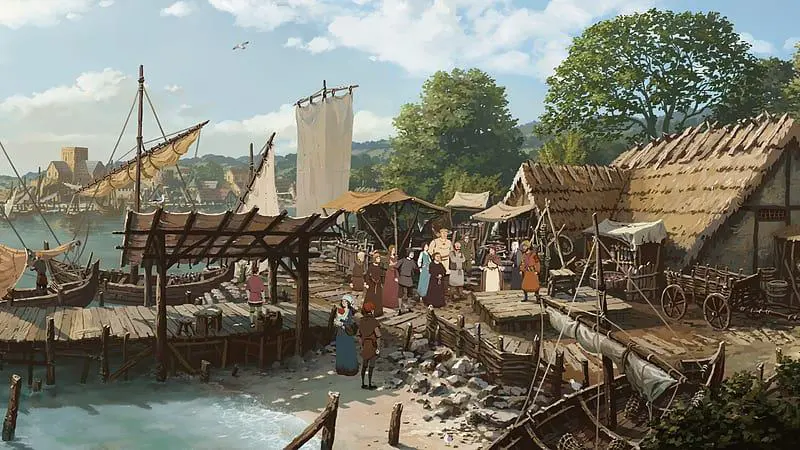
I can’t put my finger on exactly where that changed. It was roughly around the time that one of the characters, Philip, a devoted monk in the made-up town of Kingsbridge, found himself in a spot of bother. It involved the local Bishop, as such things often do, and a tasty bit of political corruption that threatened to overthrow the local earl.
Christ, even on paper that sounds dull. And it is for so long that you don’t realise that you’re properly into it until its 2am and you’re suddenly furious at the injustice of the latest narrative development. Good writing will do that to you. And The Pillars of the Earth is so sneaky that you can’t help but respect how subtly you acclimate to its relentlessly downbeat tone and peculiar, verbose rhythm.
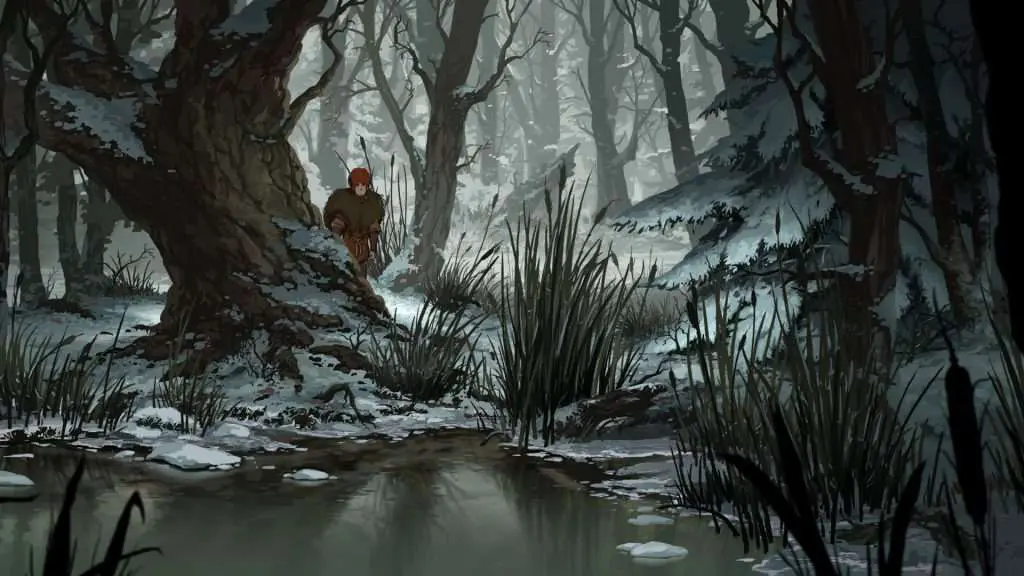
Then it has you. And it doesn’t let go until it has spun a wide-ranging and far-reaching tale that is, on reflection, one of the deepest and most involving a video game has blessed us with in quite some time. Which I can’t say I was at all expecting during those opening hours spent steering Philip around a poor and destitute Kingsbridge in the aftermath of its Prior’s death.
There are other playable characters: Jack, a red-haired child raised in the woods by his outlaw mother, for whom everything is changed by a chance encounter with a family during a tough winter; and Aliena, the daughter of that disgraced earl, who we meet as a prisoner in her own home, promised to a sadistic lout from another noble family, and determined to stage a daring escape.
As is to be expected in a period of history cheerfully known as “The Anarchy”, medieval England is not a pleasant place. The Pillars of the Earth brings it artfully to life, mind, in an understated and often beautiful way. Everything is nuanced, from its use of light and shade, to the small moving details, to the animation of the big, expressive character sprites. And when they speak, the voice acting is superb. It’s just as well, really, as most of the game is spent chatting with people in that age-old multiple-choice style, though responses here must be made within a time limit, as with all truly tense video game conversations.
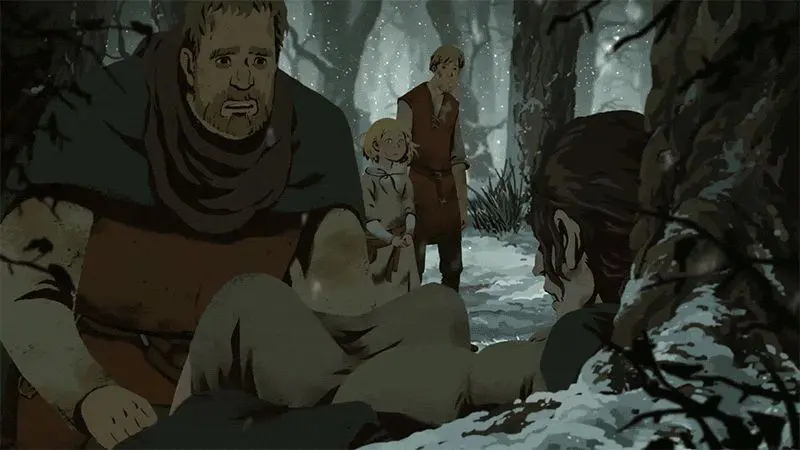
Your responses and decisions can dramatically alter a character’s opinion of you, and steer narrative events in a particular direction. As is common, the broader story proceeds along a predetermined path, but I was continually surprised by how many seemingly innocuous choices resurfaced to spite me later on. I’m a huge proponent of only playing games like this through once, so I’m unsure quite how much I reshaped events to my will. But what I can say for certain is that I always felt as though I had in hand in the lives of these characters; that their fates were, in some small way, determined by me, even though in all likelihood they weren’t. It might be an illusion, but it scarcely matters.
For an adventure game, The Pillars of the Earth is light on puzzles or QTE-driven action, although there’s a smattering of both here and there. But the focus on dialogue and story suit the tone, and feel, I suspect, more of a piece with the original book (or perhaps the Ridley Scott-produced TV adaptation.) Even those infrequent environmental puzzles are in-keeping with character, such as having Philip quote scripture from the Bible he carries everywhere to persuade a recalcitrant monk to do one a solid.
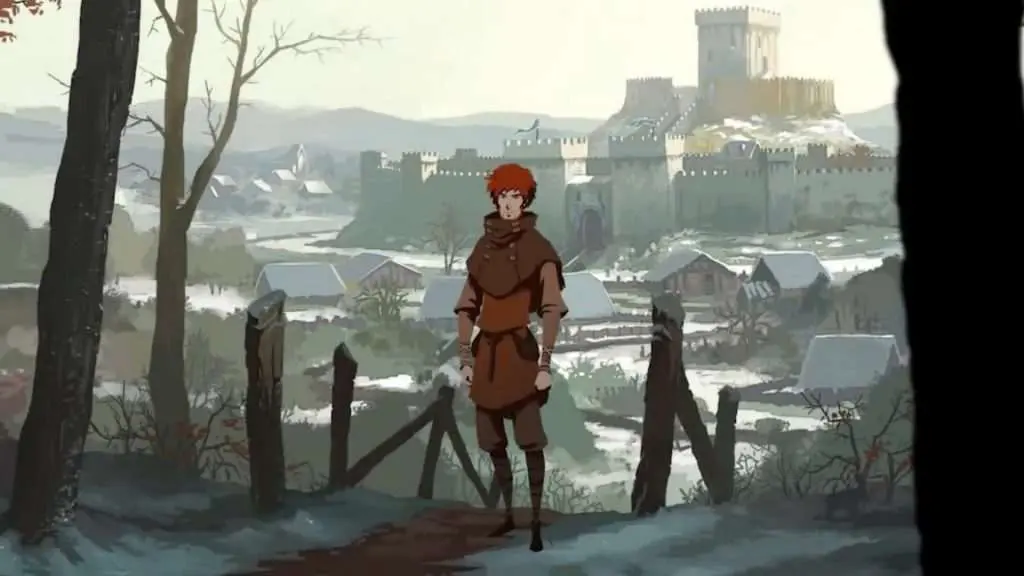
There are issues – most of them technical. For some reason in certain environments whichever character I was controlling would do a weird frame-skipping fast walk that made it look as though they were doing an impression of that chick from Gothika. And during a conversation with Brother Milius, the Kingsbridge Kitchener, his head completely detached and floated over a loaf of bread.
Still, these are minor, hilarious bugs that sometimes offered welcome levity in the face of such a brutally complex and grown-up story. I know it’ll be a hard sell for some, especially during that tortuous early period, but for those who are willing to stick with it, The Pillars of the Earth provides a rich, detailed and evocative experience during an oft-unexplored period of history. There’s nothing else quite like it in games, and if you’re the kind of player who values story above all else, it’s well worth persevering with this one.

